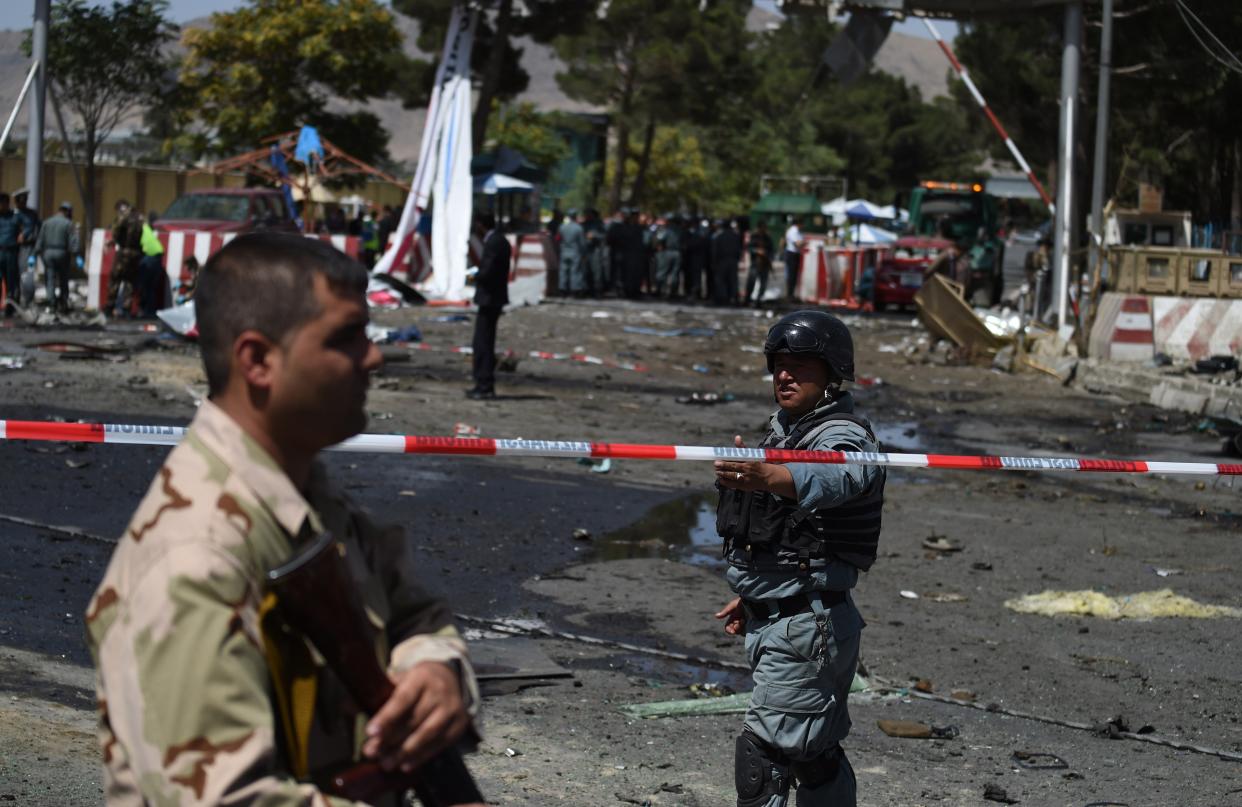Al-Qaeda could regroup in Afghanistan in one to two years and threaten US homeland, claims top intelligence official

- Oops!Something went wrong.Please try again later.
Al-Qaeda could regroup in Afghanistan in as little as one to two years and have the capacity to threaten the American homeland, according to a top US intelligence official.
In comments that underscored the growing concern in western capitals about the ability for al-Qaeda and other militant groups to again make use of Afghanistan as a base of operations, Lt Gen Scott Berrier, director of the Defence Intelligence Agency, said his assessment was “conservative”.
“The current assessment, probably conservatively, is one to two years for al-Qaeda to build some capability to at least threaten the homeland,” he said, addressing the annual Intelligence and National Security Summit.
The New York Times said the thrust of Lt Gen Berrier’s comments were echoed by David Cohen, deputy director of the CIA.
He said a major challenge in seeking to determine the threat timeline was knowing when Al-Qaeda or Isis-K, would “have the capability to go to strike the homeland” before they could be detected.
When Joe Biden last month pulled out the last of the thousands of US troops that had been part of a 20-year occupation, he claimed Washington would retain its “over-the-horizon” counter-terrorism ability, even without boots on the ground.
“We conduct effective counterterrorism missions against terrorist groups in multiple countries where we don’t have a permanent military presence,” he said in an address from the White House.
“If necessary, we will do the same in Afghanistan. We’ve developed counterterrorism over-the-horizon capability that will allow us to keep our eyes firmly fixed on any direct threats to the United States in the region and to act quickly and decisively if needed.”
But that assertion was rapidly questioned. In the very last days of the US evacuation from Kabul, which had to be completed by 31 August, a suicide bomber set off an explosion close to the gates of Kabul airport, killing more than 100 Afghans and 13 US Marines.
Responsibility for the attack was claimed by Isis-K, an offshoot of the extremist group that had sought to create a “caliphate” in Iraq and Syria, and it raised pressing questions about the ability of the Taliban, which now rules the country, to counter groups such as Isis.
In 2001, Osama Bin Laden and other members of Al-Qaeda, used Afghanistan, which was run by the Taliban, to launch the 9/11 attacks, the 20th anniversary of which the world marked last weekend.
In the days after the Kabul attack, the US had responded by use of unmanned drones, one of which destroyed a vehicle in Kabul. The US claimed the car contained Isis planners, but media investigations have suggested it killed 10 Afghan civilians with no links to the group.
While a majority of Americans had supported the Mr Biden’s plan to withdraw US troops – deal that had actually been signed by Donald Trump’s administration – most thought the evacuation was badly handled.
Many commentators could not understand how, given the US had spent $80bn (£58bn) to train and equip the Afghan armed forces, the country fell to the Taliban with barely a fight.
Congress has opened hearings to try and understand what happened, and the Senate Foreign Relations Committee has called secretary of state Antony Blinken to give evidence.
New Jersey Democrat Bob Menendez described the withdrawal as “a debacle”.
“The execution of the US withdrawal was clearly and fatally flawed,” said Mr Menendez. “This committee expects to receive a full explanation of this administration’s decisions on Afghanistan since coming into office last January. There has to be accountability.”
Mr Blinken claimed the administration had done the best it could under difficult circumstances.
“Even the most pessimistic assessments did not predict that government forces in Kabul would collapse while US forces remained,” he said. “They were focused on what would happen after the United States withdrew, from September onward.”
Additional reporting Associated Press
Read More
Afghanistan news live: UK into ‘final hours’ of evacuation mission

